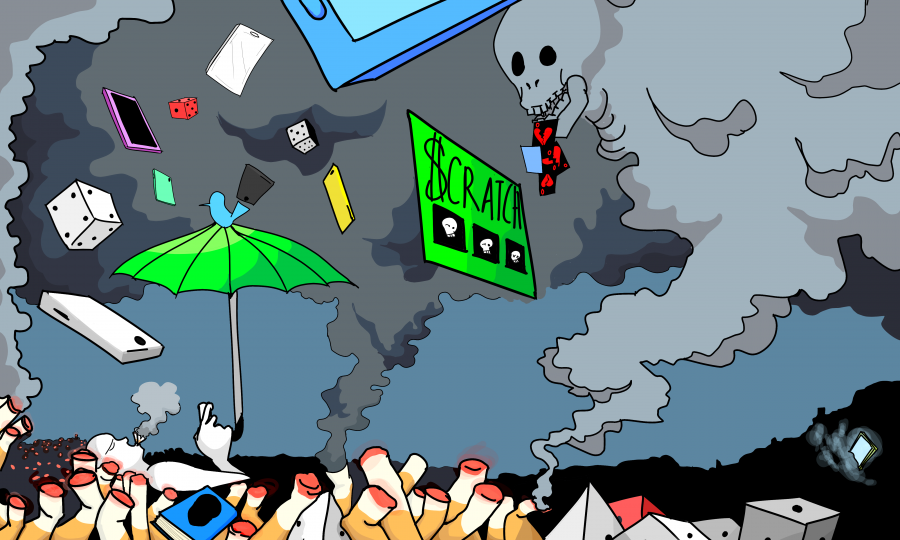I was broken. I applied to become a member of a student society — unlike many others, it seemed like the right fit — and I got an interview. Then I didn’t get in, so I succumbed to my masochistic tendencies. I spent several hours on Facebook and Twitter, looking through the society’s accounts and their members. I saw the illusion of perfection: the gleam of their uniforms; the casual perfection of their lives; the heads of state they greeted; and the inspirational quotations they tweeted. Social media invited me to observe, but not enter, worlds where I didn’t belong. “A-Plus human,” read a comment on a post of students who got into the organization. It’s hard enough to deal with rejection, but seeing success thrust in front of your face is a special kind of torment.
Apparently, I’m not alone. Misery loves virtual company; according to a survey of internet users by the market research firm GlobalWebIndex, average internet users spend more than two hours a day on social media — and that’s only a third of the time they spend online. Much can be said about its corrosive effect on civic life and its shallowness, but the compelling argument against social media lies in its effect on our happiness. According to a study from the University of Copenhagen, "regular use of social networking such as Facebook can negatively affect your emotional well-being and satisfaction with life.” For the most addicted, programs like reSTART, an internet recovery retreat in Seattle, offer individual therapy sessions and group outings such as hiking in a national park, to acclimate people to a more balanced life. It costs $20,000 for a 45-day program.
We’re told that the onus is on us, that it’s our fault we are addicted. Publications from Vice to The New York Times advise us on how to moderate our use of social media or quit it altogether. If you can “be a tough editor” of what you host or “set a timer,” then you can cast aside your addiction as easily as those excess pounds. It would be ludicrous to expect heroin addicts to cure themselves, so why expect online addicts to curb their addiction by themselves? A call to self-responsibility is not enough in and of itself.
App designers can play a role in making their social media apps less addicting. Tristan Harris, a design ethicist and a former “product philosopher” at Google, said in a blog post that designers must stop exploiting the psychological vulnerabilities of users by helping us set boundaries. For example, if someone is in the top percentile of Facebook users, Harris argues, then the app should send them a reminder that they may need to dial back on their usage. Comparing addiction to slot machines, he writes that these apps draw users in because they receive different rewards — like a Tinder match or seeing a nice picture on Facebook — every time they use the app, keeping them coming back for the novelty. While companies like Facebook make billions each quarter by keeping users logged on the app, it comes at the expense of well-being.
There may be a free market for our minds, but our mental health must be preserved for the sake of our sanity. We prosecute dealers who sell heroin or cocaine or prescription drugs on the street because of their dangerous potential for abuse; we too need to authoritatively check the indispensable power of social media so we can reclaim our autonomy. Private citizens must demand responsibly-designed apps, and elected officials must not be afraid to impose regulations if necessary. As a society, we must not just focus on treating the individual, but also the whole system to adequately address the urgency of this problem. Facebook, Twitter and Instagram must help us use social media in moderation, not in excess.
Wong is a senior columnist from McKinney. Follow him on Twitter @calebawong.





















